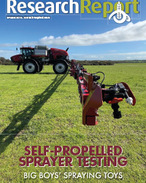This article is 8 years old. Images might not display.
The research may show the sterile form has all the cattle production benefits without viable seed, eliminating a future weed risk.
Leucaena is a long-life, leguminous forage tree that was first introduced by the CSIRO in the 1950s for extensive grazed systems for tropical Australia. The tree produces a palatable, nutritious, high protein leaf for cattle giving liveweight gains twice that of grass-only pastures at 250-300 kg/HD/yr, or 125 – 150kg per hectare at a stocking rate of 1hd:2ha.
Although leucaena is currently prohibited from being cultivated on WA Crown land, due to its risk of becoming an environmental weed, it has shown great potential as highly nutritious cattle feed in Queensland and Central America where it originated.
Conventional breeding technology will be used to develop the variety from national and international germplasm acquired from the Australian Pastures Genebank.
The Department of Primary Industries and Regional Development is leading the project in WA, which will include several field trials at controlled irrigated and dryland production sites across the Kimberley and Pilbara.
State Agriculture and Food Minister Alannah MacTiernan said the research project could provide a high value food source for northern cattle to strengthen WA's beef industry and drive new jobs in the north.
"This project draws on the scientific capability and experience of the Department of Primary Industries and Regional Development's plant breeding staff and will build on past research with universities and industry,” Minister MacTiernan said.
"The development of a sterile leucaena would have an application far beyond WA - both nationally and internationally - putting our industry back at the forefront of research and development,” she said.
"The project will provide northern beef producers with a highly productive, cost-effective fodder that poses no risk to the rangelands environment, while presenting real opportunities for finishing off our cattle here in WA and creating jobs across the north.”
The three-and-a-half year sterile leucaena project is jointly funded by the McGowan Government, Meat and Livestock Australia Donor Company and the University of Queensland.























